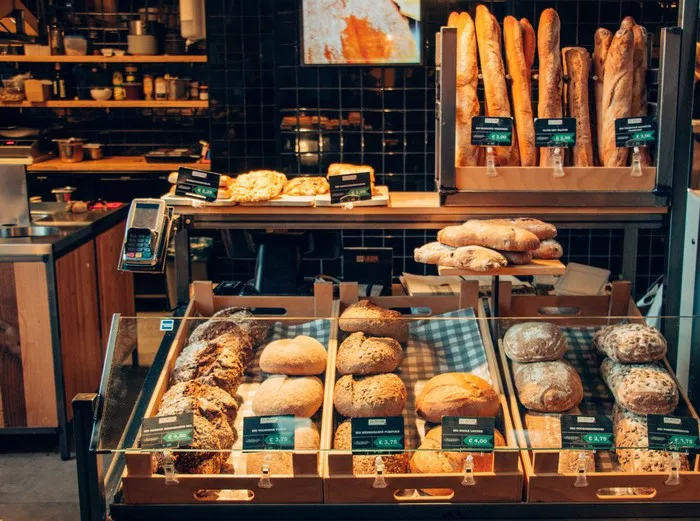In the competitive world of franchising, understanding the financial implications of investing in a franchise is crucial for prospective entrepreneurs. Among the myriad of options available, Paul Bakery stands out as an internationally renowned brand, offering a delectable array of pastries and baked goods. This article delves into a comprehensive cost analysis of investing in a Paul Bakery franchise, encompassing initial investment, ongoing expenses, financial projections, and return on investment (ROI). Additionally, we will introduce Amma’s Bakery, providing context for the comparison and analysis.
Introduction to Amma’s Bakery
Amma’s Bakery emerges as a locally cherished brand, deeply rooted in the community it serves. With a commitment to quality ingredients and traditional recipes passed down through generations, Amma’s Bakery has garnered a loyal customer base. While its reach may not extend globally like Paul Bakery, its emphasis on authenticity and personalized service sets it apart in its own right.
Paul Bakery Franchise: Initial Investment
Investing in a Paul Bakery franchise entails a substantial initial investment, reflective of the brand’s international recognition and established reputation. The initial investment typically includes franchise fees, leasehold improvements, equipment purchases, and working capital.
Franchise fees for Paul Bakery can range from $50,000 to $100,000, depending on the location and market demand. Leasehold improvements, which encompass renovations and adaptations to the chosen retail space, may require an investment ranging from $100,000 to $300,000. Equipment purchases, including ovens, display cases, and kitchen appliances, can amount to $50,000 to $150,000.
Working capital is essential to sustain operations during the initial phase of the franchise’s establishment. This includes expenses such as employee salaries, utility bills, and marketing efforts. Working capital requirements typically range from $50,000 to $100,000.
In total, the initial investment for a Paul Bakery franchise can vary significantly, ranging from $250,000 to $550,000, depending on location-specific factors and market conditions.
Paul Bakery Franchise: Ongoing Expenses
Beyond the initial investment, operating a Paul Bakery franchise incurs ongoing expenses necessary for sustaining daily operations and ensuring profitability. These ongoing expenses include rent, utilities, payroll, ingredients, marketing, and royalty fees.
Rent constitutes a significant portion of ongoing expenses, varying based on the chosen location and size of the retail space. Monthly rental costs can range from $5,000 to $20,000, depending on factors such as location desirability and square footage.
Utilities, including electricity, water, and gas, are essential for maintaining operational efficiency. Monthly utility expenses typically amount to $1,000 to $3,000, depending on the size of the bakery and regional utility rates.
Payroll expenses encompass wages for employees involved in baking, customer service, and management roles. The monthly payroll for a Paul Bakery franchise can range from $10,000 to $30,000, depending on staffing levels and wage rates.
Ingredients are a fundamental component of bakery operations, with costs varying based on the volume of production and ingredient quality. Monthly ingredient expenses typically range from $5,000 to $15,000.
Marketing expenses are essential for promoting the Paul Bakery brand and attracting customers. Monthly marketing budgets can range from $2,000 to $5,000, covering strategies such as social media advertising, local events, and promotional offers.
Royalty fees constitute a percentage of the franchisee’s gross sales, payable to the franchisor as compensation for brand usage and ongoing support. Royalty fees for Paul Bakery franchises typically range from 5% to 8% of gross sales.
In total, ongoing expenses for a Paul Bakery franchise can amount to $25,000 to $80,000 per month, depending on various factors such as location, sales volume, and operational efficiency.
Paul Bakery Franchise: Financial Projections and ROI
While the initial investment and ongoing expenses are significant considerations, understanding the financial projections and potential return on investment (ROI) is paramount for assessing the viability of a Paul Bakery franchise.
Financial projections for a Paul Bakery franchise are influenced by factors such as location, market demand, competition, and operational efficiency. Projected revenue typically depends on factors such as foot traffic, average transaction value, and sales mix.
On average, a well-established Paul Bakery franchise can generate annual revenues ranging from $500,000 to $1.5 million, with profit margins typically ranging from 10% to 20%. However, it is essential to note that these figures can vary significantly based on location-specific factors and market conditions.
Calculating the ROI for a Paul Bakery franchise involves analyzing the initial investment, ongoing expenses, and projected revenues over a specified period. While ROI calculations can vary based on individual circumstances, a typical timeframe for assessing ROI in the franchise industry ranges from three to five years.
Assuming an initial investment of $400,000 and annual net profits of $80,000, the ROI for a Paul Bakery franchise could range from 20% to 30% over a five-year period. However, it is essential to conduct a thorough analysis considering factors such as market volatility, competitive landscape, and operational challenges.
Conclusion
In conclusion, investing in a Paul Bakery franchise presents an enticing opportunity for aspiring entrepreneurs seeking to capitalize on a globally recognized brand and indulge customers with premium baked goods. However, prospective franchisees must carefully evaluate the initial investment, ongoing expenses, financial projections, and ROI to make an informed decision aligned with their goals and aspirations. By conducting a thorough cost analysis and weighing the potential risks and rewards, entrepreneurs can embark on a rewarding journey into the world of franchising with confidence and clarity.

